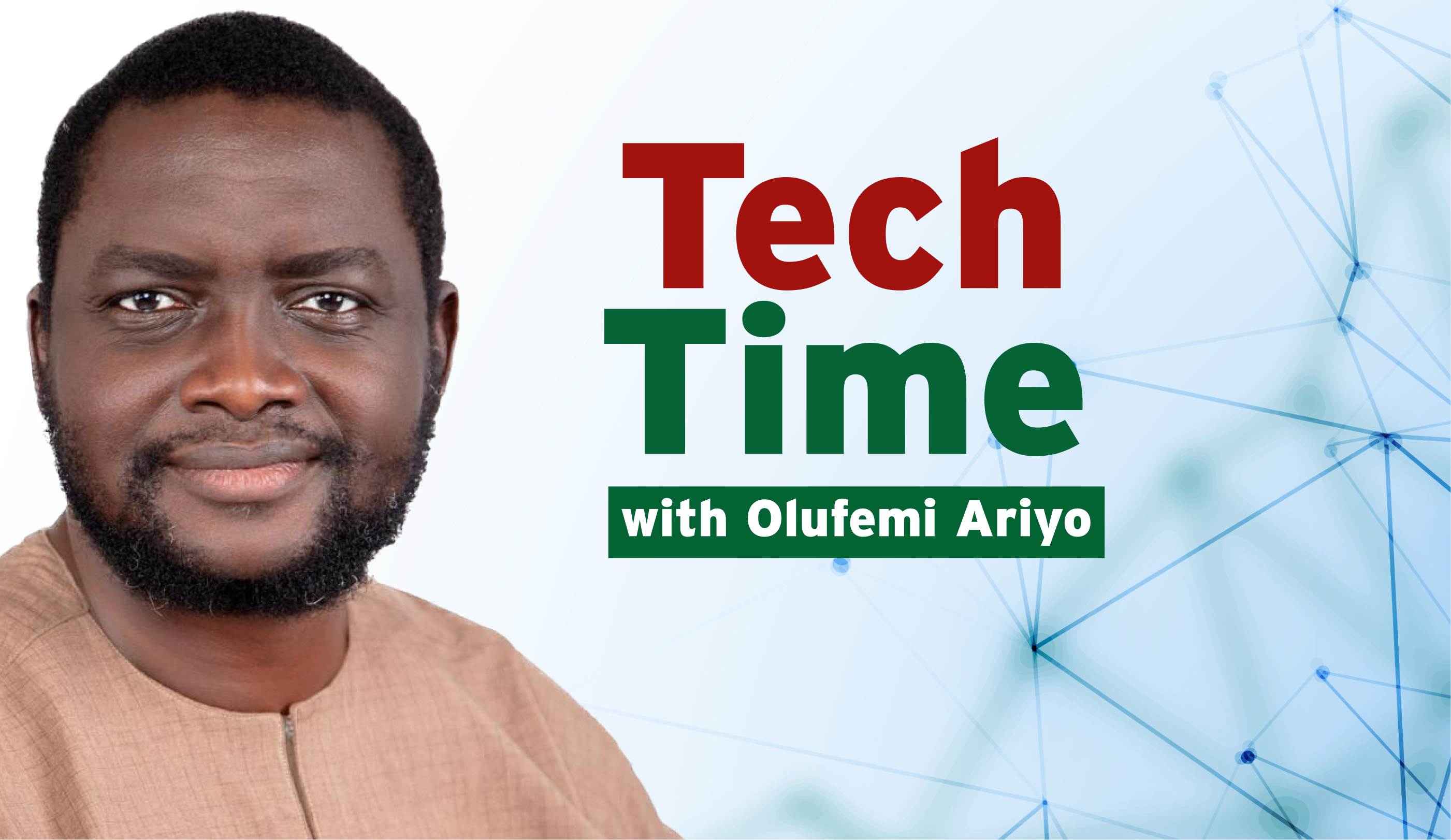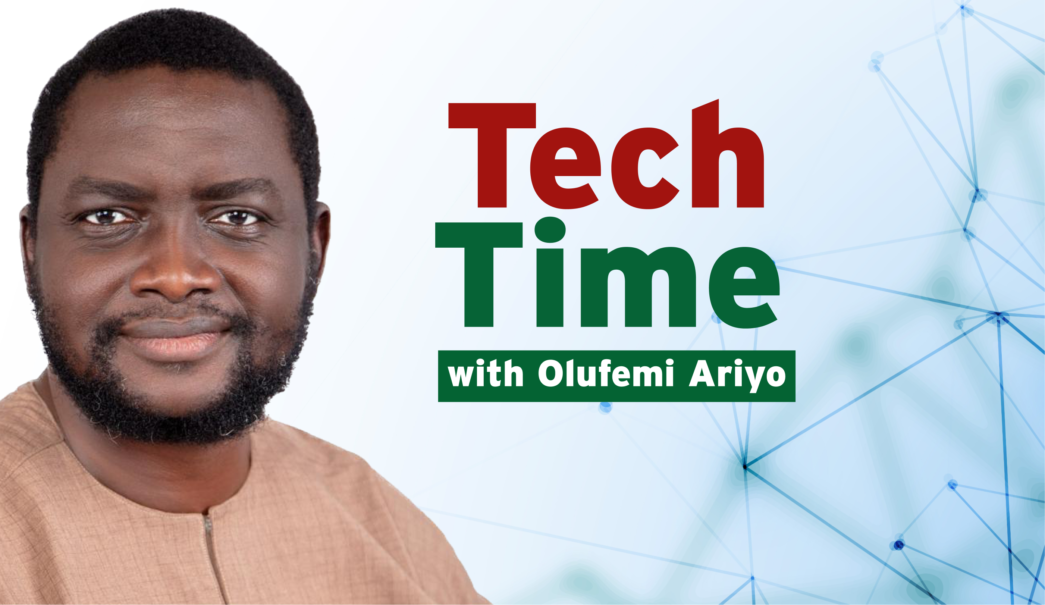Micro, Small, and Medium Enterprises (MSMEs) are critical drivers of economic development, employment, and innovation across the globe, accounting for over 90% of businesses in countries like Nigeria. However, their growth is often hindered by structural challenges such as limited access to finance, digital infrastructure gaps, and inadequate policy support. This paper considers the role of smart hubs—innovation-driven spaces that offer co-working environments, digital tools, mentorship, and access to capital—in addressing these challenges and accelerating MSME development.
Focusing on Nigeria, the study examines the current landscape of smart hubs including notable examples such as Co-Creation Hub and Impact Hub Lagos, while highlighting constraints such as limited geographical reach and underinvestment. The analysis is further enriched by comparative insights from two developed economies: the United States and Germany. In the U.S., smart hubs thrive through a synergy of government support, private investment, and strong digital ecosystems. Germany, on the other hand, leverages its “Mittelstand” model and public-private partnerships to integrate smart hubs with Industry 4.0 initiatives.
Drawing lessons from these advanced models, the paper proposes strategic interventions for Nigeria, including expanding hubs to underserved regions, promoting public-private collaboration, improving infrastructure, and enhancing digital literacy. The study concludes that while Nigeria has made initial strides, a more inclusive and localised smart hub strategy can unlock the full potential of its MSMEs and drive sustainable economic growth.
The knowledge drive and digital connectedness present today has alerted us that the success of Micro, Small, and Medium Enterprises (MSMEs) increasingly depends on their access to innovation ecosystems that offer both physical infrastructure and strategic support. A major development in this area is the emergence of smart hubs—dynamic innovation centres or co-working spaces that go beyond just providing office space. These hubs are equipped with digital infrastructure, business development services, mentorship programs, access to funding, and networking opportunities. Their purpose is to promote entrepreneurship, accelerate startup growth, and improve the competitiveness of small businesses in a progressively digital economy.
Advertisement
In addition, MSMEs play a foundational role in national economic development. In Nigeria, for instance, MSMEs make up over 90% of businesses and contribute notably to employment, income generation, and local innovation. Despite their importance, MSMEs often face systemic barriers such as limited access to capital, inadequate infrastructure, low digital literacy, and weak policy support. These challenges hamper their ability to scale, compete, and contribute fully to economic transformation. Smart hubs, when effectively implemented, have the potential to bridge these gaps by creating inclusive environments where innovation can thrive at the grassroots level.
The purpose of this comparative study is to examine how smart hubs operate in different economic contexts—specifically in Nigeria, the United States, and Germany—in order to draw relevant insights and lessons that can be adapted to the Nigerian context. By analysing the structural, financial, and policy frameworks that support smart hubs in the U.S. and Germany, this thought trail aims to propose actionable strategies for enhancing Nigeria’s innovation ecosystem. The ultimate goal is to strengthen the capacity of Nigerian MSMEs, not only to survive in a competitive marketplace but also to drive inclusive and sustainable economic growth.
1. Smart Hubs and MSMEs in Nigeria
Advertisement
Current Landscape
Nigeria boasts a vibrant and diverse MSME sector, comprising over 39 million micro, small, and medium-sized enterprises, according to data from the Small and Medium Enterprises Development Agency of Nigeria (SMEDAN). These enterprises span various industries including agriculture, retail, manufacturing, and services, and contribute immensely to employment generation, poverty reduction, and GDP growth. Despite their economic importance, MSMEs in Nigeria continue to operate under highly constrained conditions.
One pressing challenges it faces is limited access to finance, as many small businesses struggle to secure affordable loans due to poor credit histories, lack of collateral, and a risk-averse banking sector. Weak infrastructure (including erratic electricity supply, poor road networks, and unreliable internet connectivity) further stifles productivity and innovation. In addition, digital illiteracy among many small business owners and an inconsistent policy environment have led to limited adoption of digital tools and formal business practices.
Emerging Smart Hubs
Advertisement
In recent years, Nigeria has seen the emergence of smart innovation hubs aimed at supporting startups and small businesses, particularly in the tech ecosystem. Prominent examples include:
- Co-Creation Hub (CcHub) in Lagos: Nigeria’s pioneering innovation hub, established in 2011, offers co-working spaces, accelerator programs, mentorship, and seed funding. CcHub has played a vital role in nurturing startups such as BudgIT and LifeBank, and continues to be a focal point for digital entrepreneurship.
- Impact Hub Lagos: Part of the global Impact Hub network, this platform supports social enterprises and sustainable innovation through collaborative workspaces, networking events, and capacity-building programs.
- Techpoint Hub: Positioned as a media-driven innovation space, Techpoint Hub combines content creation, startup incubation, and community-building to connect tech entrepreneurs with investors and consumers.
These hubs have become essential entry points for Nigerian MSMEs—particularly those in the formal and tech-driven segments—to access mentorship, business development services, and exposure to venture capital. They are also creating much-needed networks where entrepreneurs can collaborate, learn, and grow.
Challenges
Despite these promising developments, the reach and effectiveness of smart hubs in Nigeria remain limited due to several persistent challenges:
Advertisement
- Geographical Concentration: Most innovation hubs are concentrated in urban centres such as Lagos and Abuja, creating a major urban-rural divide. MSMEs in smaller cities and rural areas remain largely excluded from the opportunities and services that smart hubs provide.
- Infrastructure Deficits: A major bottleneck for smart hubs is the unreliable power supply and poor internet connectivity, which disrupts operations and drives up operational costs. These infrastructure limitations make it difficult for hubs to scale and maintain consistency in their offerings.
- Low Government Investment and Policy Alignment: While private-sector players have driven most of the innovation hub initiatives, public sector support remains weak. There is a lack of coordinated national policy to integrate smart hubs into broader MSME development strategies. Furthermore, inconsistencies in taxation, regulatory hurdles, and weak enforcement of intellectual property rights pose additional risks to startup sustainability.
- Inclusivity and Accessibility: Many smart hubs are still inaccessible to informal businesses and non-tech MSMEs due to costs, language barriers, and limited digital literacy among target beneficiaries.
In summary, while Nigeria’s smart hub ecosystem is gradually taking shape and contributing to the development of a modern entrepreneurial landscape, its potential is yet to be fully realised. For smart hubs to effectively serve the broader MSME population, especially outside major cities, there must be deliberate investment in infrastructure, policy support, capacity building, and the decentralisation of innovation resources. Only then can these hubs serve as true engines for inclusive economic transformation in Nigeria.
2. Comparison: United States
Advertisement
A Well-Developed Smart Hub Ecosystem
The United States represents one of the most mature and strategically coordinated innovation ecosystems in the world. Smart hubs (also referred to as innovation centres, co-working labs, and tech incubators) are deeply embedded in the U.S. startup and small business support framework. These hubs are not just physical workspaces, but vibrant ecosystems that provide access to talent, technology, funding, and networks that help MSMEs thrive.
Advertisement
Notable examples of smart hubs include:
- WeWork Labs: An innovation platform under the WeWork brand, it offers early-stage startups access to mentorship, investor networks, and customised growth programs.
- 1871 Chicago: Named after the year of the Great Chicago Fire, this hub is one of the largest tech incubators in the U.S., hosting hundreds of startups and providing a wide range of services, including workshops, VC access, and strategic partnerships.
- Station Houston (now part of The Ion): A leading smart hub that promotes innovation in Houston by connecting startups with academic institutions, corporations, and investors.
What sets the U.S. model apart is its high level of integration. Smart hubs are closely aligned with universities, such as MIT, Stanford, and University of California, as well as local and state governments, and large corporations that provide technical support, market access, and corporate venture capital. This networked structure creates a seamless pathway for startups and MSMEs to move from idea to scale.
Advertisement
Support Mechanisms
The United States has developed a broad range of institutional and financial mechanisms that underpin the success of its smart hubs and the MSMEs they support:
- Federal Grants and Loans: Through agencies like the Small Business Administration (SBA), the federal government provides grants, microloans, and technical assistance programs to small businesses. SBA programs also partner with accelerators and local hubs to reach entrepreneurs at the community level.
- Accelerator and Incubator Networks: Programs offered by Y Combinator, Techstars, and 500 Startups provide intensive mentorship and seed funding to early-stage startups, many of which operate within smart hubs.
- Research and Development Funding: The U.S. government, through institutions like the National Science Foundation (NSF) and Small Business Innovation Research (SBIR) program, provides R&D funding for technology-driven small enterprises.
- Angel and Venture Capital Ecosystem: A strong network of angel investors, venture capitalists, and corporate investors continuously scouts smart hubs for promising MSMEs to fund.
- Digital Infrastructure and IP Protections: The U.S. enjoys world-class digital infrastructure, including high-speed internet, cloud platforms, and cybersecurity systems. Additionally, the legal framework around intellectual property protection encourages innovation by safeguarding inventions, trademarks, and proprietary software—an essential element for tech-based SMEs.
Impact on MSMEs
The cumulative effect of these elements has produced a highly dynamic entrepreneurial environment, where startups can scale rapidly and small businesses can transition into globally competitive firms.
- Rapid Scale-Up: Smart hubs offer the resources and environment needed for startups to move quickly from ideation to commercialisation. The United States is home to many unicorns (startups valued at over $1 billion) that began their journeys in innovation hubs.
- Diverse MSME Participation: While smart hubs are often associated with the tech industry, they also support SMEs in manufacturing, health tech, agriculture, clean energy, and other sectors. For instance, the Manufacturing Extension Partnership (MEP) program connects smaller manufacturers with innovation resources through regional hubs.
- Regional Economic Revitalisation: In cities like Detroit, Pittsburgh, and Austin, smart hubs have helped to revive post-industrial economies by attracting tech talent, fostering entrepreneurship, and diversifying the local business base.
The U.S. experience demonstrates the transformative power of smart hubs when they are supported by a robust policy framework, access to finance, and multi-stakeholder collaboration. For Nigeria, the U.S. model underscores the importance of ecosystem alignment, where government, academia, private sector, and communities work together to create environments conducive to small business innovation and growth.
3. Comparison: Germany
Focus on “Mittelstand” SMEs
Germany’s economy is globally recognised for the strength and resilience of its “Mittelstand”—a term that refers to a vast network of small and medium-sized enterprises that are often family-owned, highly specialised, export-oriented, and deeply rooted in regional economies. These businesses are considered the backbone of the German economy, accounting for over 99% of all firms and more than 60% of employment. Unlike many SME models around the world, Mittelstand companies are often global leaders in niche markets (so-called “hidden champions”), particularly in high-tech manufacturing, engineering, and industrial services.
The German approach to supporting its SMEs is both technologically progressive and structurally inclusive, with smart hubs playing a central role in enabling digital transformation, driving innovation, and ensuring competitiveness in the global market.
Smart Hub Examples: Digital Hubs Initiative
The Federal Ministry for Economic Affairs and Climate Action (BMWK) launched the “Digital Hub Initiative” to connect SMEs with tech startups, research institutions, and investors through a nationwide network of innovation hubs. These hubs focus on sector-specific expertise and are strategically located in cities that complement Germany’s industrial and academic strengths:
- Berlin: Focuses on Internet of Things (IoT), artificial intelligence, and digital health.
- Frankfurt: Specialises in fintech and smart financial services.
- Munich: A leader in mobility, robotics, and Industry 4.0 applications.
These Digital Hubs serve as collaborative platforms where traditional SMEs (especially Mittelstand firms) can engage with cutting-edge technologies and business models. They help SMEs bridge the gap between conventional industrial operations and digitally integrated systems, preparing them for the future of production, logistics, and customer engagement.
Integration with Industry 4.0, Automation, and IoT
Germany’s smart hub strategy is closely aligned with the national vision of Industry 4.0, which aims to digitalise the manufacturing sector by integrating cyber-physical systems, data analytics, and machine learning into industrial processes. Smart hubs act as experimentation and demonstration sites for technologies such as:
- Smart factories and sensor-driven automation.
- Digital twins used in manufacturing simulation and optimisation.
- Connected logistics using IoT and cloud platforms.
- Sustainable production using green tech innovations.
Through these hubs, SMEs are not only exposed to innovation but are also given the tools and training to adapt and co-develop solutions that match their specific business needs. This hands-on, sector-driven approach ensures relevance and accelerates adoption.
Public-Private Support and Financing Mechanisms
A cornerstone of Germany’s innovation ecosystem is the strong collaboration between public institutions, academia, and industry. Smart hubs typically function as part of larger regional innovation clusters, supported by universities, technical colleges (Fachhochschulen), chambers of commerce, and large corporations.
Key support mechanisms include:
- Government-Backed Financing:
- KfW Bank (Germany’s state-owned development bank) offers favourable loans, innovation grants, and equity financing to SMEs participating in hub-related projects.
- EXIST program provides funding to university spin-offs and early-stage startups based in smart hubs.
- Mentorship and Capacity Building:
- SMEs receive guidance from experienced entrepreneurs, corporate partners, and academic researchers.
- Continuous training in digital tools, export strategy, cybersecurity, and compliance is available.
- Policy Alignment:
- Smart hubs are part of Germany’s long-term national innovation strategies and industrial policy frameworks.
- This ensures consistency, transparency, and measurable impact in how resources are allocated and progress is tracked.
Impact on MSMEs
The German model has demonstrated measurable success in modernising traditional businesses, enabling them to stay globally competitive while maintaining local roots. Smart hubs have:
- Accelerated the digital transformation of SMEs, especially in traditional sectors such as automotive, machinery, and chemicals.
- Enabled cross-sector collaboration, allowing companies from different industries to co-create innovative solutions.
- Supported the internationalisation of SMEs, helping them access global markets with tech-enhanced value propositions.
Germany’s experience illustrates how smart hubs can be systematically embedded into a national innovation and industrial policy. Through a strong public-private framework, sectoral specialization, and a commitment to inclusive modernisation, the German model offers a valuable blueprint for countries like Nigeria. By fostering localised innovation capacity, promoting digital upskilling, and building strategic partnerships, smart hubs can help bridge the gap between traditional SMEs and the demands of a global digital economy.
4. Lessons for Nigeria
To harness the full potential of smart hubs in driving MSME development, Nigeria must adopt a strategic, inclusive, and localised approach. Lessons from the United States and Germany reveal that smart hubs thrive when they are supported by robust infrastructure, strong institutional frameworks, and deliberate collaboration across sectors. Below are key lessons and recommendations tailored to the Nigerian context:
(a) Expand Reach Beyond Major Cities
One glaring limitation of Nigeria’s current smart hub ecosystem is its urban concentration, particularly in Lagos, Abuja, and to a lesser extent, Port Harcourt. However, the majority of Nigeria’s MSMEs operate in secondary cities, peri-urban areas, and rural communities—locations often overlooked in digital innovation strategies.
To bridge this gap:
- Government and private investors must invest in establishing regional and rural innovation hubs.
- These hubs should be tailored to local economic strengths (e.g., agritech in Benue, leather in Aba, mining in Jos).
- Deploy mobile or modular innovation units, similar to mobile clinics, that can move between rural communities to deliver short-term digital and business training.
Expanding smart hubs into underserved areas will democratise access to technology, mentorship, and financing—key enablers of small business resilience and growth.
(b) Strengthen Public-Private Partnerships (PPPs)
The success of smart hubs in both the U.S. and Germany is largely due to multi-stakeholder collaboration. Nigeria must replicate this by building strong, trust-based partnerships among:
- Telecommunication companies: To ensure reliable internet access and digital infrastructure support.
- Banks and fintechs: To provide inclusive financial services such as low-interest loans, digital wallets, and savings tools for hub users.
- Universities and technical institutions: To embed innovation hubs within campuses and leverage student talent, research, and mentorship.
- Large corporates and multinationals: To act as off-takers, partners, or sponsors for startup solutions developed in hubs.
Government agencies like SMEDAN and NITDA can serve as facilitators of these partnerships, ensuring alignment with national development goals and industry needs.
(c) Improve Policy and Incentives
A supportive policy environment is crucial for the growth and sustainability of smart hubs. Nigeria should enact and enforce policies that:
- Offer tax incentives to private organisations or developers who establish and maintain innovation hubs, especially in underserved regions.
- Introduce startup-friendly regulations, such as simplified business registration, IP protection, and ease of access to government grants.
- Create a Smart Hub Development Fund, with matching grants or seed capital provided to startups operating in designated innovation zones.
- Encourage cluster-based policy frameworks, where entire value chains in a sector (e.g., textiles, agri-processing) are supported through hub-based innovation strategies.
Policy consistency, transparency, and long-term planning will attract more local and foreign investment into the ecosystem.
(d) Upgrade Digital and Power Infrastructure
No smart hub can thrive without reliable electricity and high-speed internet, which remain critical bottlenecks across much of Nigeria. Addressing these issues requires both policy reform and infrastructure investment.
Key steps include:
- Expand broadband infrastructure using 4G and 5G networks, especially in non-urban areas. Incentivise telecom providers through tax waivers or public infrastructure-sharing models.
- Promote mini-grid solar systems and alternative energy solutions for rural innovation hubs, reducing dependency on unreliable national power.
- Establish connectivity benchmarks and enforce minimum standards for internet and power provision within certified smart hubs.
Access to stable digital and power infrastructure will increase the productivity, trust, and sustainability of hubs and the MSMEs they serve.
(e) Focus on Capacity Building and Inclusion
Finally, the long-term effectiveness of smart hubs hinges on their ability to build human capital. This includes not only technical and entrepreneurial training but also ensuring inclusion of marginalised groups such as women, youth, and persons with disabilities.
To build capacity:
- Incorporate digital literacy, business management, and vocational training into all smart hub programs.
- Partner with vocational institutions to develop certified short courses in areas like coding, agribusiness, branding, digital marketing, and e-commerce.
- Ensure inclusivity by subsidising access for underrepresented groups and translating hub services into local languages where needed.
- Establish mentorship programs linking successful entrepreneurs and industry veterans with new MSMEs.
A deliberate investment in people—particularly at the grassroots—will ensure smart hubs are not only centres of innovation but also engines of inclusive development.
We must note that Nigeria stands at a critical juncture where digital transformation and entrepreneurship can unlock broad-based economic growth. However, without a well-distributed, well-supported, and inclusive network of smart hubs, MSMEs (particularly those in informal and rural sectors) will continue to be left behind. By expanding access, investing in infrastructure, and building a strong collaborative ecosystem, Nigeria can leverage smart hubs not just as urban tech spaces, but as powerful tools for nationwide economic empowerment.
Conclusion
To wrap it up, smart hubs have emerged as critical enablers of Micro, Small, and Medium Enterprise (MSME) development. They serve as platforms that provide more than just physical space—they offer entrepreneurs access to digital tools, mentorship, funding, training, and collaborative networks that are vital for business success in the modern economy. The comparative analysis of Nigeria, the United States, and Germany highlights the strategic role smart hubs play in advancing entrepreneurship and accelerating the scale-up of small businesses. In the United States, smart hubs are deeply integrated into a broader innovation ecosystem, supported by a robust combination of government funding, private investment, and institutional backing. Germany’s approach is more industrially focused, with its smart hubs working in tandem with its “Mittelstand” firms and national strategies like Industry 4.0, leveraging public-private cooperation and localised sectoral expertise.
Nigeria has made commendable strides in cultivating a fledgling smart hub ecosystem, particularly in urban centres such as Lagos and Abuja. Hubs like CcHub and Impact Hub have provided vital platforms for tech-driven startups and youth-led enterprises. However, the ecosystem remains limited in scope, accessibility, and scale. Key challenges such as unreliable infrastructure, digital exclusion, limited financing, and policy fragmentation continue to impede the potential of smart hubs to fully serve the vast and diverse MSME sector.
To close this gap, Nigeria must adopt a strategic, inclusive, and localised smart hub model. This involves:
- Expanding hub networks beyond urban centres into rural and underserved regions.
- Strengthening partnerships between government, academia, private sector, and development agencies.
- Providing infrastructure and digital tools, especially broadband and reliable power, to enable sustainable operations.
- Designing inclusive programs that build the capacity of all types of MSMEs—tech-based and traditional, urban and rural, formal and informal.
Moreover, Nigeria must learn from the structural discipline, policy continuity, and collaborative ethos demonstrated in the U.S. and Germany. Adaptation, not imitation, is key. A successful Nigerian model must reflect its unique socio-economic landscape, cultural dynamics, and business realities. By doing so, smart hubs can become powerful instruments for not only stimulating innovation and job creation, but also for driving equitable and long-term economic transformation.
Ultimately, unlocking the full potential of Nigeria’s 39 million MSMEs through a well-planned smart hub ecosystem will require visionary leadership, sustained investment, and collective action. If these conditions are met, smart hubs can evolve into the very backbone of Nigeria’s journey toward a digital, diversified, and inclusive economy.
Thank you for the enormous investment in time and attention. Please follow my Medium: https://medium.com/@roariyo (for more of my curated thoughts) and LinkedIn: https://www.linkedin.com/in/olufemiariyo/ or send an email to [email protected]












